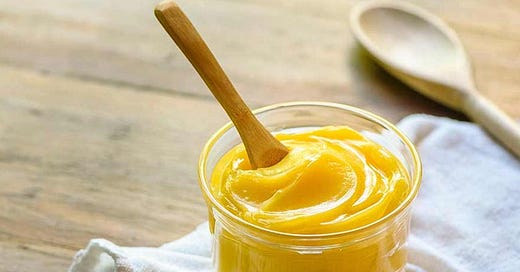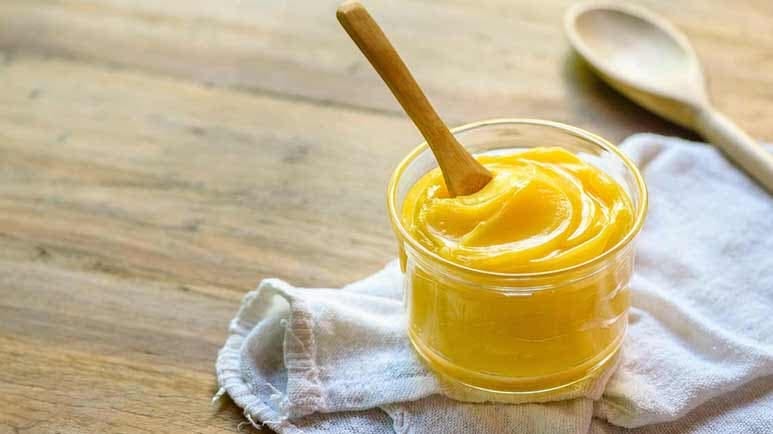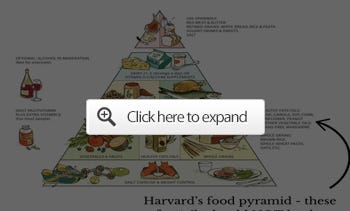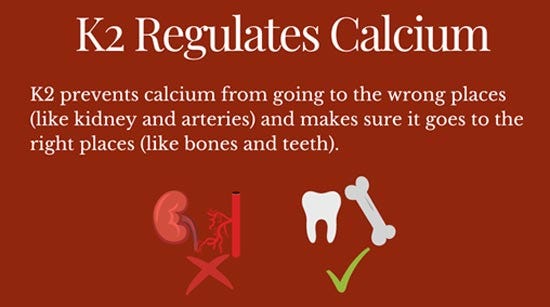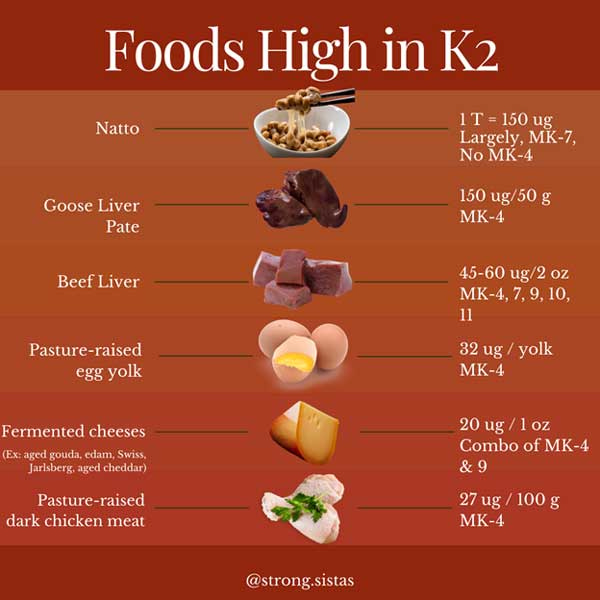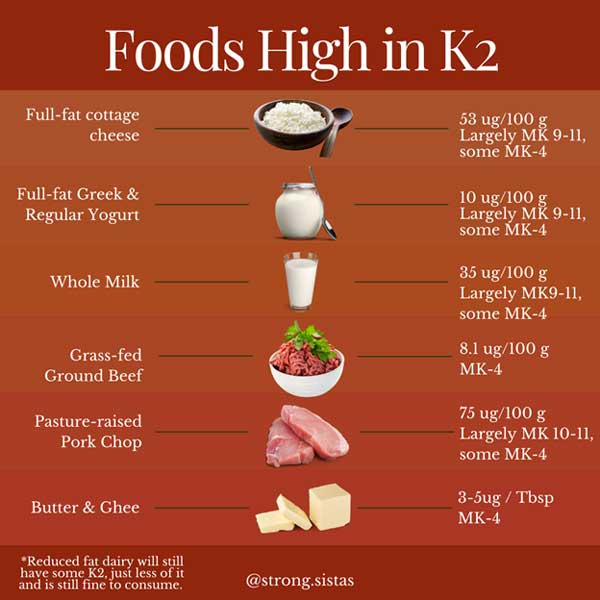One Reason Why Consuming Animal Fats Is Vital
Marketed as heart-healthy, these oils might be depriving your body of a key nutrient that prevents calcification in arteries and kidneys while supporting strong bones and teeth.
By: Ashley Armstrong
STORY AT-A-GLANCE
Vitamin K2, found exclusively in animal fats and fermented foods, is essential for metabolic health, serving as an emergency electron carrier during cellular reductive stress
Unlike plant-based oils, animal fats provide vitamin K2, which helps regulate calcium distribution, ensuring it's deposited in bones and teeth rather than arteries and kidneys
Research indicates higher dietary vitamin K2 intake reduces the risk of coronary heart disease mortality and severe aortic calcification, unlike vitamin K1 found in plants
While gut bacteria can produce vitamin K2, its absorption is limited due to production location and bacterial binding, making dietary sources crucial for optimal intake
Pasture-raised animal products are superior sources of K2, with pastured chicken eggs containing 3 to 4 times more K2 than conventional eggs
Let's discuss just one of the reasons why regularly consuming animal fats is vital for health. Animal fats contain a metabolism-boosting and heart protective nutrient that is not available in plants: Vitamin K2.
Sorry Harvard, but your 'Heart Healthy' fats and oils like olive, canola, soy bean, corn, sunflower, and peanut oils do not contain this vital nutrient.
There are 2 forms of vitamin K, each supporting different aspects of health and serve unique roles in the body. Both are beneficial to consume daily!
Vitamin K1 — Primarily found in plant foods and is abundant in leafy greens and veggies. (My favorite sources are collard greens, Brussels sprouts, parsley, and green beans.)
Vitamin K2 — Only found in animal foods and fermented foods. The term 'vitamin K2' refers to a collection of forms known as 'menaquinones' that are abbreviated with 'MK' with a number attached referring to the chain length/structure size. For ex: MK-4 and MK-7.
One of the biggest health benefits of vitamin K2 consumption is that it restores metabolic health since it serves as an emergency electron carrier when cells are in reductive stress (electron build up), helping to restore proper electron flow and metabolism. Most people are not metabolically healthy, and are experiencing reductive stress.
"Mitochondrial dysfunction was rescued by vitamin K(2) that serves as a mitochondrial election carrier, helping to maintain normal ATP production."1 Since K2 fights reductive stress, it can help reverse insulin resistance and mitochondrial dysfunction.2 3
Another health benefit of vitamin K2 is that it regulates calcium — K2 prevents calcium from going to the wrong places (like kidney and arteries) and makes sure it goes to the right places (like bones and teeth).
Osteocalcin is a vitamin K2 dependent protein that the body needs to pull calcium from the bloodstream to deposit it where we want it: in the bones and teeth. Osteocalcin also stimulates the growth of new dentin, the calcified tissue underneath tooth enamel, reducing cavity risk and slowing tooth degradation.
"The relative risk (RR) of coronary heart disease mortality was reduced in the mid and upper turtles of dietary menaquinone (K2) compared to the lower ... Intake of menaquinone was also inversely related to all-cause mortality and severe aortic calcification. Phylloquinone (K1) intake was not related to any of the outcomes."4
Vitamin K2 can be synthesized by bacteria in the large intestine. However, this bacterially produced K2 has limited bioavailability and absorption for several reasons:
Location of production — The large intestine is not the primary site of nutrient absorption in our digestive system5
The K2 produced by gut bacteria are bound to bacterial cell membranes, making them less accessible for absorption6
An unhealthy gut can further reduce the already inefficient production and absorption of K27
Since absorption of bacterially synthesized K2 is generally poor, dietary sources are the primary source of functionally available K2.
Fats from pasture-raised animals are going to be one of your best sources and will contain more K2 relative to animals raised in since they consume grass, which is rich in vitamin K1, which is converted to K2 by certain bacteria in the animal's gut. For example:
Pasture-raised chicken yolk — 30 to 40 ug K2/yolk
Confinement raised chicken yolk — 10 ug K2/yolk
Since animal fats are rich in K2 (especially food products from pasture-raised animals), you don't have to go crazy overboard in your fat consumption to consume sufficient amounts. K2 research and understanding is still in its infancy. But 100 to 200 ug daily intake is likely beneficial (ref: Chris Masterjohn, PhD). Here are three examples, in addition to your other food sources for the day of course!
1 to 2 oz aged cheese, 2 pasture-raised eggs, 3 oz dark chicken meat
1 to 2 oz aged cheese, 2 pasture-raised eggs, 1 oz beef liver
1 oz aged cheese, 2 pasture-raised eggs, 3.5 oz ground pork
Aged cheeses and pasture-raised eggs are going to be some of your best sources — and are important to consume daily! (Or at least every other day.)
Summary
Here are some take home points about Vitamin K2:
Vitamin K2 is important for metabolic health, bone and dental health, heart and kidney health, hormone production, and cancer prevention.
Animal products and natto are the best sources of vitamin K2, but one form (MK-4) is only found in animal products.
Eating animal fats is a practical way to consume this vital nutrient (plus, animal fats tend to be lower in PUFA and higher in SFA, further supporting metabolic health).
You don't have to go crazy overboard in your daily fat consumption to consume enough K2, but consuming the most nutrient-rich sources will ensure you regularly consume this vital micronutrient.
About the Author
Ashley Armstrong is the co-founder of Angel Acres Egg Co., which specializes in low-PUFA (polyunsaturated fat) eggs that are shipped to all 50 states (join waitlist here), and Nourish Cooperative, which ships low-PUFA pork, beef, cheese, A2 dairy and traditional sourdough to all 50 states. Waitlists will reopen shortly.
Disclaimer: The entire contents of this website are based upon the opinions of Dr. Mercola, unless otherwise noted. Individual articles are based upon the opinions of the respective author, who retains copyright as marked.
The information on this website is not intended to replace a one-on-one relationship with a qualified health care professional and is not intended as medical advice. It is intended as a sharing of knowledge and information from the research and experience of Dr. Mercola and his community. Dr. Mercola encourages you to make your own health care decisions based upon your research and in partnership with a qualified health care professional. The subscription fee being requested is for access to the articles and information posted on this site, and is not being paid for any individual medical advice.
If you are pregnant, nursing, taking medication, or have a medical condition, consult your health care professional before using products based on this content.

